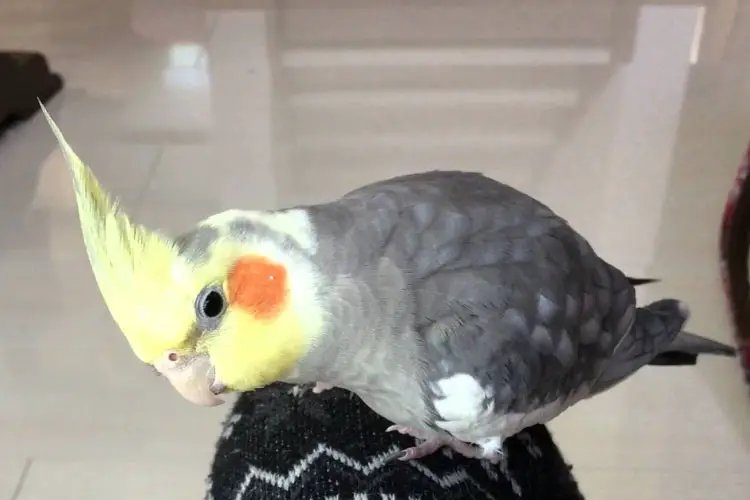You will always notice something new about your cockatiel as its owner. Some of the cockatiel’s behaviors may be unusual, and you may be concerned if you don’t know what they mean. One of these behaviors is a cockatiel bobbing/nodding its head. Let’s look to see if there’s anything to be concerned about.
Cockatiels bob their heads when communicating with others, when they are excited, bored, hungry, or want to be noticed. However, there are times when head bobbing is linked to disease. Moreover, head bobbing differs by gender and age. Male cockatiels, for example, nod their heads during mating season.
Let’s take a closer look at some of the most common causes of head bobbing.
What Does It Mean When My Cockatiel Bobs Its Head?
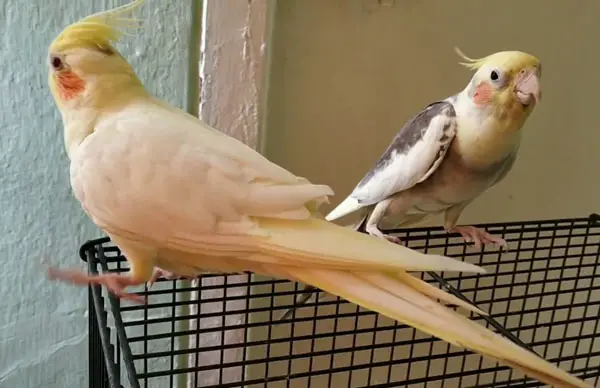
Here are some reasons your cockatiel may be moving its head up and down;
1. Boredom
Cockatiels nod their heads to express their desire to play or be entertained. This is common when it has attempted to capture your attention differently, but you have ignored it. If it bobs its head as soon as you enter a room, it may be doing it to catch your attention. Cockatiels are intelligent birds and therefore require mental stimulation daily.
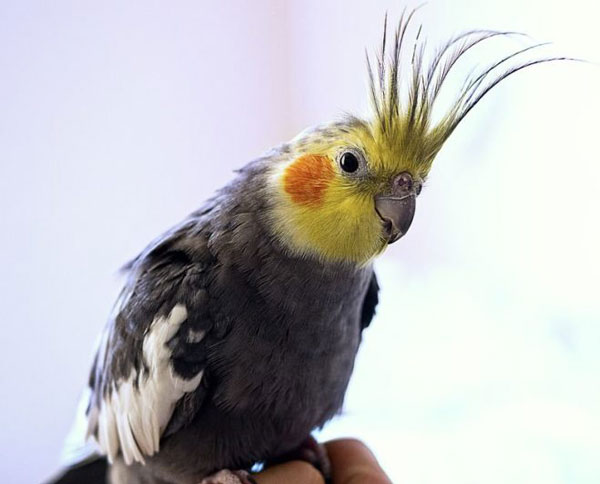
As a result, you should provide your cockatiel with various toys and puzzles to focus on and play with. You could also include a companion bird to help with loneliness when you are not present. That is because when your bird is bored, it may combine head bobbing with harmful behaviors such as feather plucking or violence.
2. Desires attention
Even if the cockatiel is not bored, it still needs its owner’s attention. It may bob its head and start moving around the cage if it hasn’t seen you in a while or simply wants you to spend some time with it.
Cockatiels also become envious when you stop spending time with them. If you pay more attention to a new pet or person, your cockatiel may nod its head to seek your attention.
3. Territorial
Cockatiels, especially males, will nod their heads up and down to notify you or other cockatiels that the area is their domain and should move back. The cockatiel will combine the head bobbing with loud noises to threaten anything or whoever is invading their domain as well.
However, the head bobbing makes the cockatiel seem more fierce. It attempts to demonstrate to the intruder that the cockatiel is not afraid and is prepared to defend itself. Likewise, your cockatiel may sometimes nod its head to show aggressiveness. This is usually territorial aggressiveness as opposed to expressing blatant aggression towards others.
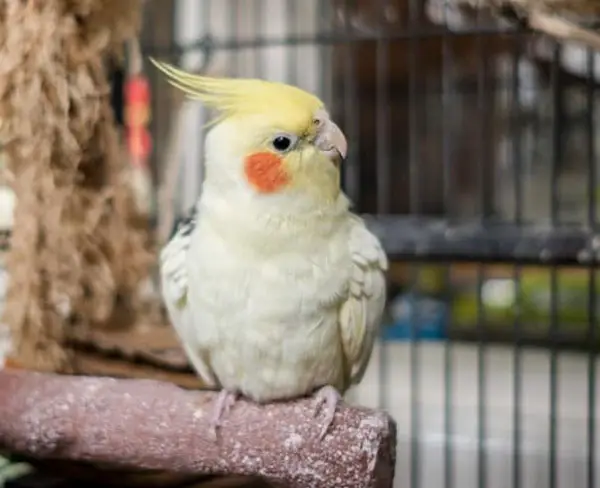
You should keep your distance if you see such behavior. You may notice this more frequently during the breeding season as the male attempts to protect the nesting area. Also, if you already have a cockatiel and add another, the first will become more territorial and seek more space. Hence, it is best to place them in separate cages to avoid territorial conflicts.
4. Illness
Cockatiels will occasionally bob their heads involuntarily because of an illness. When a cockatiel is ill, head bobbing is accompanied by lethargy, wheezing, tail-bobbing, and runny feces. Head bobbing from sickness is more pronounced than nodding for other reasons.
According to research, if head bobbing is accompanied by periods of closed eyelids, the cockatiel’s sickness is very severe. You may also notice the cockatiel falling from its perch due to a loss of equilibrium. In addition, the cockatiel’s feathers will be ruffled even at the optimal room temperature. So, ensure you take the cockatiel straight to the veterinarian for investigation.
5. Stress
To know the cockatiel is stressed, you must know how your cockatiel behaves under normal conditions. That means you must be a keen observer because most cockatiels will hide their emotions of fear, sickness, or stress. In the wild, cockatiels mask their fears not to appear vulnerable to predators.
So, the cockatiel may also be injured or in pain which causes it to become frustrated, thus bobbing its head. You will also observe the bird has ruffled or fluffed feathers or may exhibit strange behaviors such as pacing, screeching, or toe-tapping.
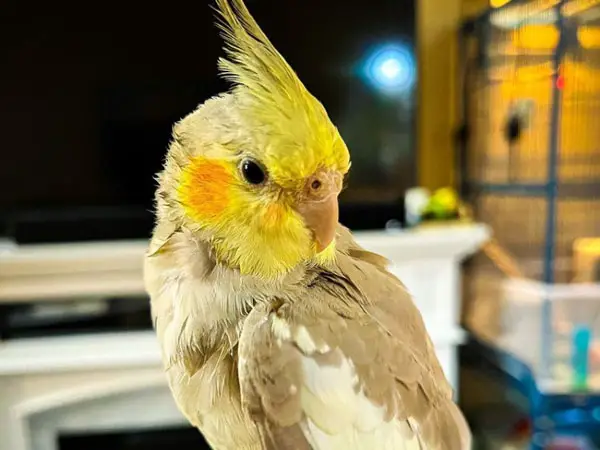
Several issues can cause stress in birds. They include;
- Being in a new environment
- Presence of a stranger or pet, such as a dog
- Changing the room’s color
- Loneliness
- Not going outside or lack of exercise
- When the cockatiel is not getting attention from you or boredom
- Predator birds flying by the window
- Changing the cage’s position
- Loud or sudden noises
6. Excited
Head bobbing does not always indicate that a bird is in distress. When a cockatiel is happy, its head bobs. Similarly, when it is time to feed or play, for example, or when it sees you after a long day, it will nod its head. If your cockatiel does this, you should be pleased because it indicates a strong bond between you.
Again, your cockatiel will occasionally bobble its head for no apparent reason, possibly because it is content with the current situation. Cockatiels also bob their heads when they hear music. According to research, cockatiels can dance and recognize rhythm.
So, if you’re listening to music, you might notice your cockatiel bobbing its head to the beat or imitating what you’re doing. Cockatiels will also nod their heads when communicating with each other.
7. Stabilization
On the other hand, as cockatiels’ eyes are wide apart on their heads, they need to bob their heads to see something out of their vision. Also, when walking, cockatiels bob their heads to balance themselves while their eyes are concentrated on something. Head bobbing helps them sharpen their vision, hear better, and offer them depth perception.
Why Do Male Cockatiels Bob Their Heads?
As previously mentioned, head bobbing differs with gender. Male cockatiels nod their heads due to the following reasons;
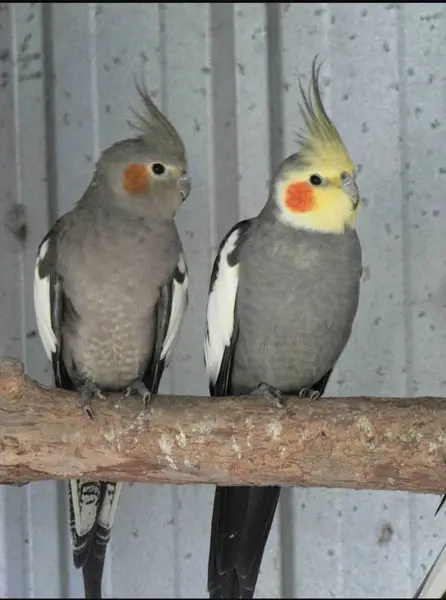
To attract a partner
During mating season, male cockatiels bob their heads while their wings are slightly open. They’ll also do a mating dance, maintaining their crests while flashing their feathers at the female and making flirtatious noises.
Males perform this wooing technique to impress their owners or other female cockatiels. Likewise, when the male and female are in the same cage, the male will bob its head at the female until she yields and mating happens.
This is natural behavior, and every cockatiel will perform it. Occasionally, this bobbing is rhythmic, giving the owner the appearance that the bird is dancing.
When the female cockatiel begins making noises to flirt back, the male knows she wants to mate with him. Also, you might notice the male cockatiel bobbing its head in front of the mirror. He may mistake his reflection for another bird and begin wooing it.
Territorial behavior
Male cockatiels are the ones that mainly express territorial behavior. The head bobbing will accompany a raised crest, open head, and neck feathers. If you notice such behavior, it is best to stay away.
What Are The Reasons For Head-Bobbing In Female Cockatiels?
Female cockatiels also nod their heads at male budgies to respond to their flirtations. Other reasons for head bobbing include:
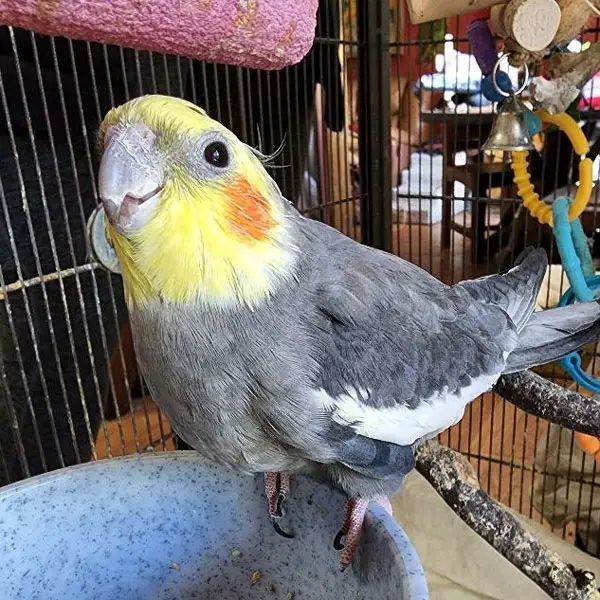
Feeding their companions
When preparing to regurgitate for their partners, female cockatiels will bob up and down to make the crop food come from their crops. This is a romantic gesture made by female and male cockatiels. You might also observe female cockatiels regurgitating on mirrors, toys, and even their owners.
If your female cockatiel regurgitates on you, it signifies that she likes you and sees you as a mate. Fortunately, the head bobbing will give you a heads-up that it’s about to happen so you can try to avoid it.
Feeding chicks
A cockatiel mother feeds her babies regurgitated food like they provide their mates. It bobs its head in response to churning the food up.
FAQs
Here are other related questions.
Baby cockatiels do this to get attention when they are hungry. As they grow older, the head bobbing stops because their parents stop feeding them.
Key Takeaways
Cockatiels nod their heads for various reasons, including expressing happiness, boredom, territorial behavior, and when looking for a mate. While head bobbing is a natural behavior, it can also indicate illness. If you suspect something is wrong, schedule an appointment with your veterinarian to check your cockatiel’s health.
